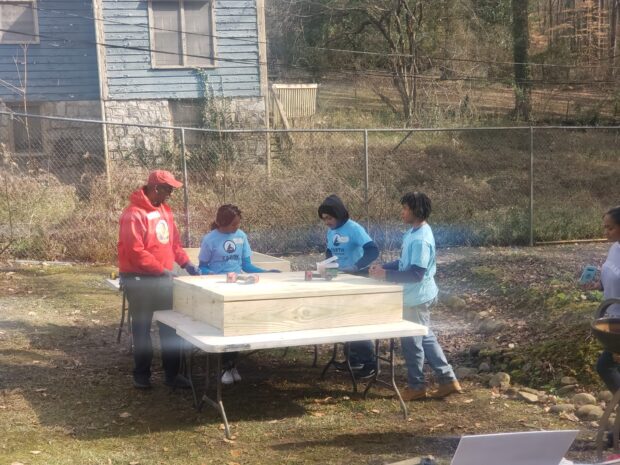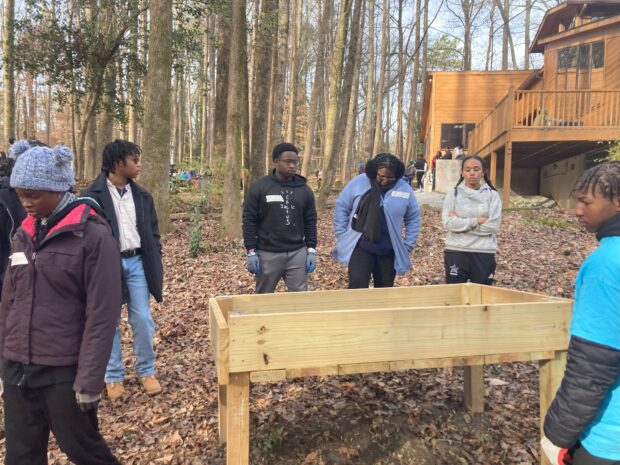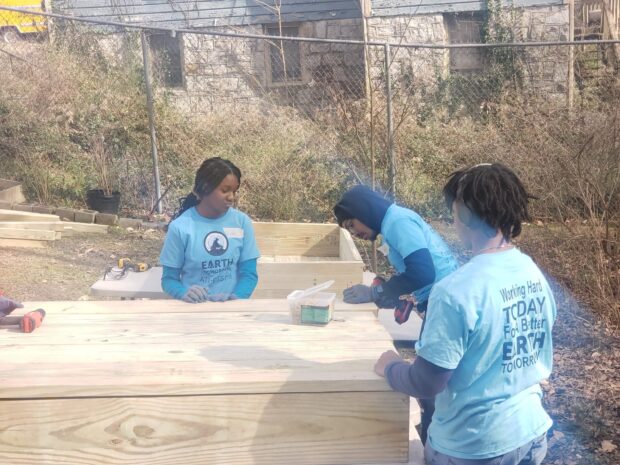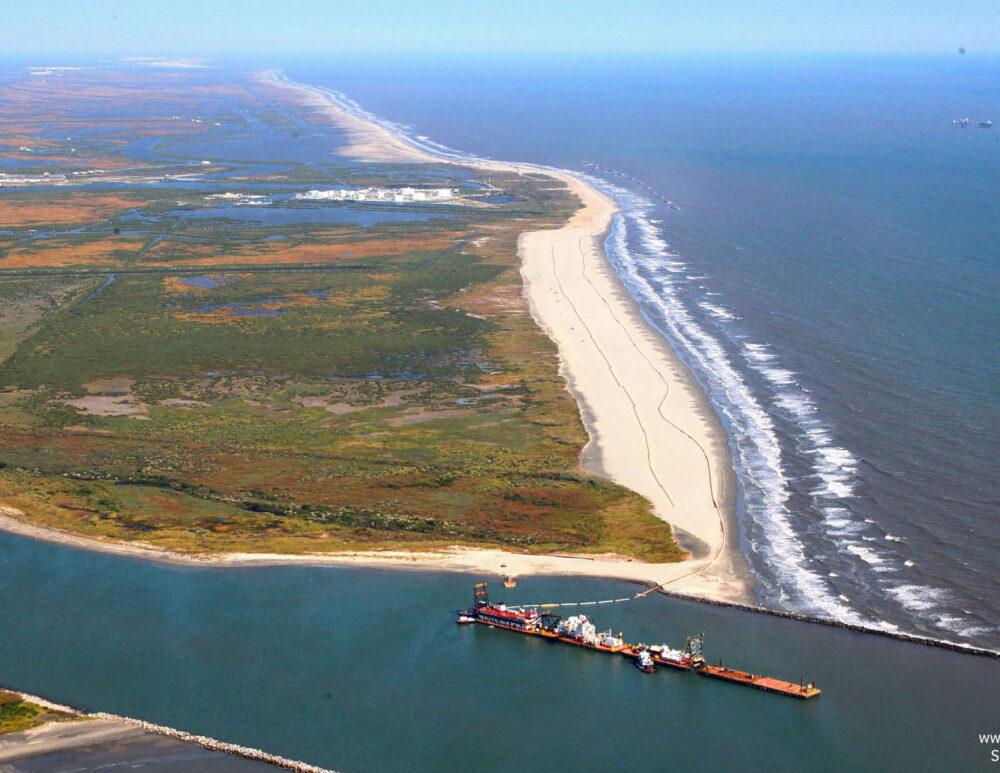We have much more to do and your continued support is needed now more than ever.
Earth Tomorrow’s “3’Peat” Service Learning Confluence
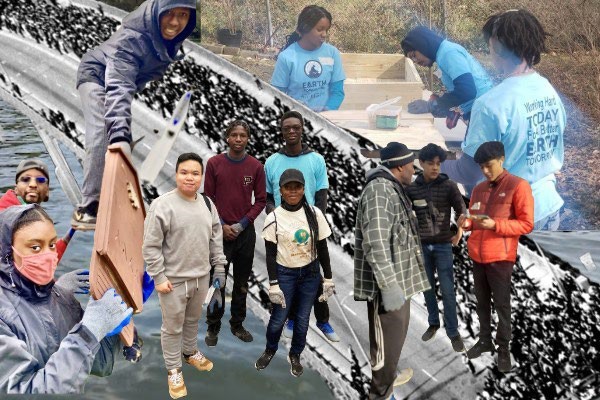
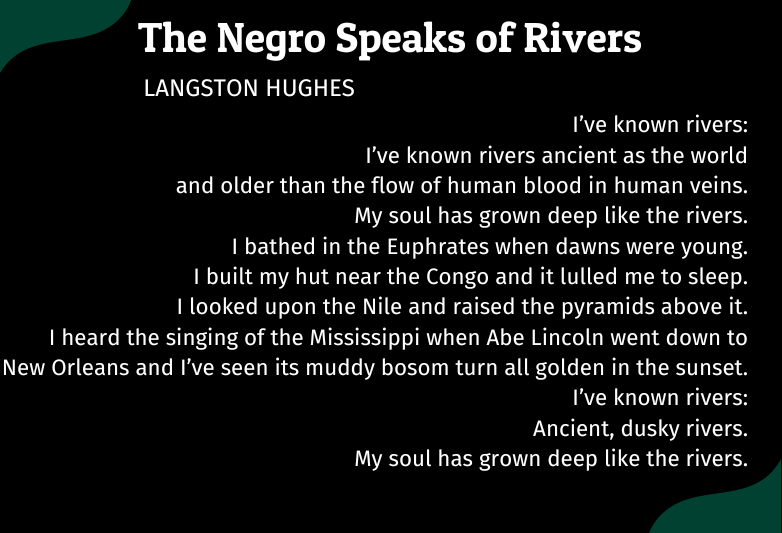
I share this poem because it speaks to confluence. Confluence: Merriam Webster defines as a coming or flowing together, meeting, or gathering at one point. The flowing together of two or more streams.
A Historic Inspiration
On March 9, 1965, a second crossing of the Edmund Pettus Bridge was made to register Black voters in Selma, Alabama. The rights of Black voters across the South were denied by preventing voter registration. Just two days before, “Bloody Sunday” left marchers beaten and bloodied by state troopers who brutalized them at the bridge. This time Dr. King asked the marchers to kneel while Rabbi Israel Dresner prayed at his behest—right there on the bridge. There were 2,500 marchers including 400 white clergy—Protestant, Catholic, and Jewish all joined together at this confluence on the bridge while the Alabama River confluence was running beneath the bridge.
After the prayer the troopers unexpectedly parted but Dr. King had the marchers turn back—this occasion is dubbed “Turn Around Tuesday.” Some said it was the biblical reenactment of the parting of the Red Sea and they were missing the moment! But the very next day the courts granted the petition for the marchers to continue supporting them in their march for voter registration rights. Jim Crow laws and elected officials were perverting the judicial system to deny the right to vote solely based on race. The marchers were bringing awareness to this injustice, forcing the federal government to uphold their constitutional rights. This account in history helped center our service project for Martin Luther King, Jr. Day on January 15, 2024.
A Day On, Not Off
MLKDay’24, the Earth Tomorrow Program of the National Wildlife Federation (NWF) did community service at the West Atlanta Watershed Alliance (WAWA), making this our third year in a row. Three years ago, when we put up bat box habitats, there were only three volunteers, in part because we had just had snow the day before—a once-a-year occurrence in “Hot’Lanta” and that is the one thing that gets Atlantans to slow down just a bit. But! NWF is all about that “wildlife” and we were not about to let the little bats freeze on our watch. Imagine the little bats confused and arguing back and forth: “Wait! Didn’t we fly far enough south, why is there snow here?” to which another bat replies “Nah, nincompoop, that’s butterflies! We’re bats; most of us live here all year round, it’s just a freak snowstorm.”
Last year, Earth Tomorrow students built standing raised beds from scratch with no plans or pre-cut pieces: just youthful energy and sheer will. This year we were invited back to “3’peat” our record of service performance and replicate the standing raised beds. We aspired to build four.
The West Atlanta Watershed Alliance is a true confluence bringing together volunteers from all walks of life year-round but especially on MLK Day to address the challenges of the Atlanta Urban watershed with service projects at multiple locations. WAWA was co-founded by Dr. Na’Taki Osborne-Jelks who also established the Earth Tomorrow Program in Atlanta 22 years ago when she worked with NWF, building upon a model that NWF’s Carey Stanton began in Detroit in 1994. Today, Carey is the Head of NWF’s Innovation Partnerships and Na’Taki is an Assistant Professor of Environmental Health Sciences at Spelman College and a scholar-activist for environmental justice.
This confluence of ideas and thought leadership helped to establish the legacy of the Earth Tomorrow Program that has yielded positive results for the environment and youth. Two of WAWA’s employees guiding the day’s efforts were alumni of the program adding a special significance.
Planting the Seed of Service
The pedagogy behind service-learning connects the project to a raison d’être—reason to be, allowing the volunteers to go beyond just “doing service.” We started with a contemplative opening question and ended with reflections. Our opening question asked students and parent volunteers, “What brought you out today?” Some said they wanted to get service hours and help out. Some said a friend invited them. The Turn Around Tuesday story was shared and then they began.
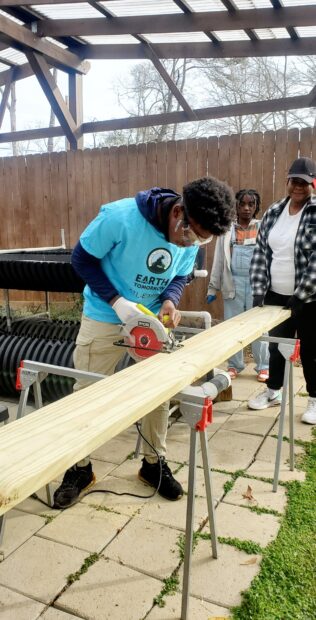
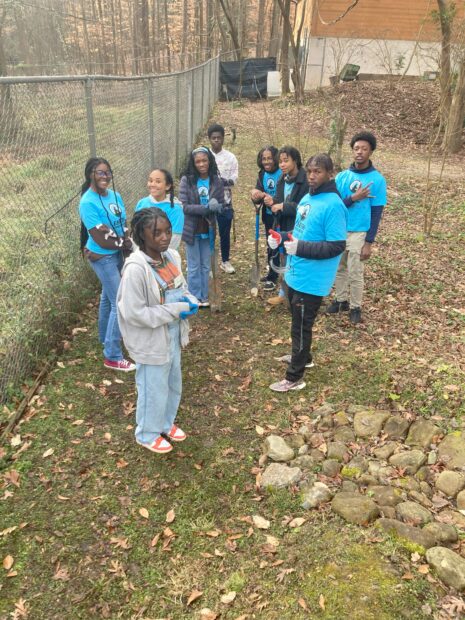
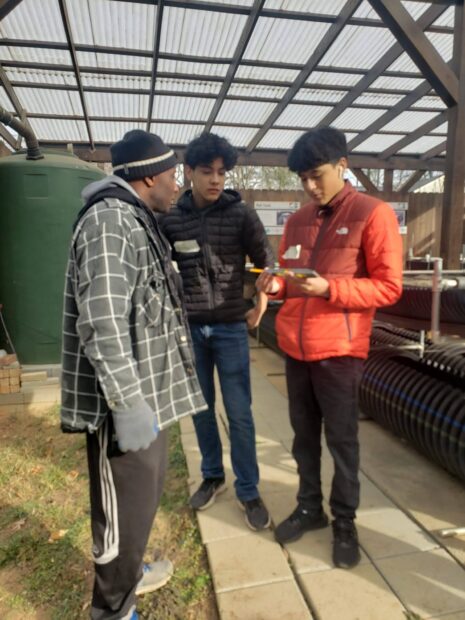
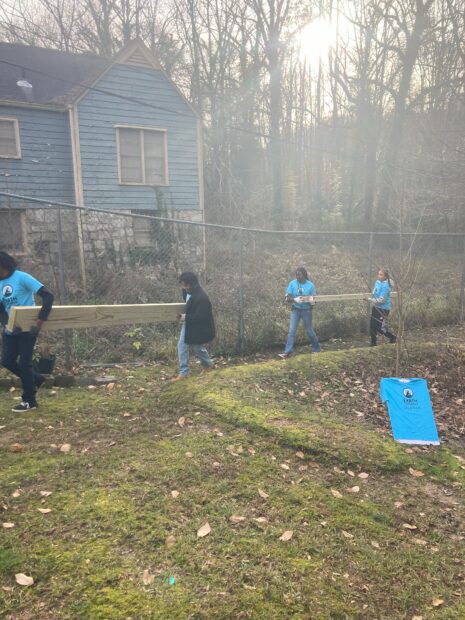
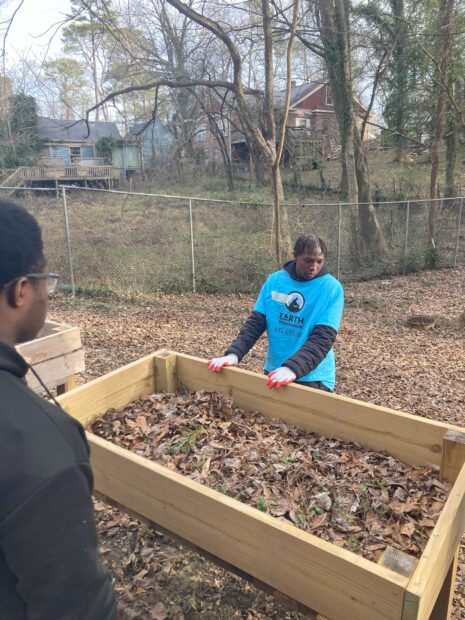
Our MLK Day volunteers dove into the project and like those marchers, we had a confluence of participants: Black and Latino, youth and parents, program alumni, NWF’s fiscal backing, and WAWA’s framework as the bridge to community service.
During reflection time when asked what they got out of the project, they mentioned wanting to do more to help the community and were happy they could be a part of the service project. At the end of the day, 20 volunteers served a combined total of 140 service hours with an in-kind donation value of $3,490; completing three raised beds, one standing and two “to be continued.” During reflection, volunteers were reminded that we are stronger together, especially in times like these when it’s important to pause and reflect. Circumstances may cause you to kneel and pray—but you must get back up because “We Shall Overcome.”

